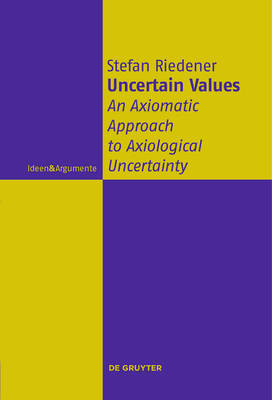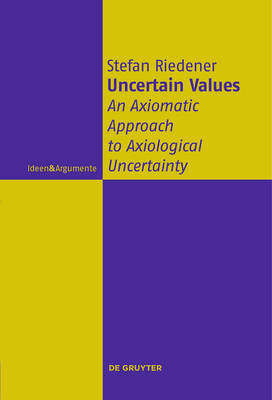
- Afhalen na 1 uur in een winkel met voorraad
- Gratis thuislevering in België vanaf € 30
- Ruim aanbod met 7 miljoen producten
- Afhalen na 1 uur in een winkel met voorraad
- Gratis thuislevering in België vanaf € 30
- Ruim aanbod met 7 miljoen producten
Zoeken
€ 15,45
+ 30 punten
Uitvoering
Omschrijving
How ought you to evaluate your options if you're uncertain about what's fundamentally valuable? A prominent response is Expected Value Maximisation (EVM)--the view that under axiological uncertainty, an option is better than another if and only if it has the greater expected value across axiologies. But the expected value of an option depends on quantitative probability and value facts, and in particular on value comparisons across axiologies. We need to explain what it is for such facts to hold. Also, EVM is by no means self-evident. We need an argument to defend that it's true. This book introduces an axiomatic approach to answer these worries. It provides an explication of what EVM means by use of representation theorems: intertheoretic comparisons can be understood in terms of facts about which options are better than which, and mutatis mutandis for intratheoretic comparisons and axiological probabilities. And it provides a systematic argument to the effect that EVM is true: the theory can be vindicated through simple axioms. The result is a formally cogent and philosophically compelling extension of standard decision theory, and original take on the problem of axiological or normative uncertainty.
Specificaties
Betrokkenen
- Auteur(s):
- Uitgeverij:
Inhoud
- Aantal bladzijden:
- 168
- Taal:
- Engels
- Reeks:
Eigenschappen
- Productcode (EAN):
- 9783111271125
- Verschijningsdatum:
- 8/05/2023
- Uitvoering:
- Paperback
- Formaat:
- Trade paperback (VS)
- Afmetingen:
- 156 mm x 234 mm
- Gewicht:
- 267 g

Alleen bij Standaard Boekhandel
+ 30 punten op je klantenkaart van Standaard Boekhandel
Beoordelingen
We publiceren alleen reviews die voldoen aan de voorwaarden voor reviews. Bekijk onze voorwaarden voor reviews.











